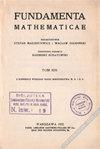Julia随机指数映射集
IF 0.5
3区 数学
Q3 MATHEMATICS
引用次数: 1
摘要
对于序列 $(\lambda_n)$ 对于正实数,我们考虑指数函数 $f_{\lambda_n} (z) = \lambda_n e^z$ 还有合成 $F_n = f_{\lambda_n} \circ f_{\lambda_{n-1}} \circ ... \circ f_{\lambda_1}$. 对于这样一个非自治族,我们可以类似于自治迭代的通常情况来定义Fatou和Julia集合。本文的目的是研究Julia集合如何依赖于序列 $(\lambda_n)$. 在其他结果中,我们证明了一个随机序列的Julia集 $\{\lambda_n \}$,均匀地从附近的 $\frac{1}{e}$是整个平面的概率 $1$. 我们也证明了茱莉亚集合 $\frac{1}{e} + \frac{1}{n^p}$ 整架飞机是用来买的吗 $p < \frac{1}{2}$,并给出一个序列的例子 $\{\lambda_n \} $ 的迭代 $0$ 从任意指标开始收敛到无穷远,但Fatou集合是非空的。本文章由计算机程序翻译,如有差异,请以英文原文为准。
Julia sets of random exponential maps
For a sequence $(\lambda_n)$ of positive real numbers we consider the exponential functions $f_{\lambda_n} (z) = \lambda_n e^z$ and the compositions $F_n = f_{\lambda_n} \circ f_{\lambda_{n-1}} \circ ... \circ f_{\lambda_1}$. For such a non-autonomous family we can define the Fatou and Julia sets analogously to the usual case of autonomous iteration. The aim of this document is to study how the Julia set depends on the sequence $(\lambda_n)$. Among other results, we prove the Julia set for a random sequence $\{\lambda_n \}$, chosen uniformly from a neighbourhood of $\frac{1}{e}$, is the whole plane with probability $1$. We also prove the Julia set for $\frac{1}{e} + \frac{1}{n^p}$ is the whole plane for $p < \frac{1}{2}$, and give an example of a sequence $\{\lambda_n \} $ for which the iterates of $0$ converge to infinity starting from any index, but the Fatou set is non-empty.
求助全文
通过发布文献求助,成功后即可免费获取论文全文。
去求助
来源期刊

Fundamenta Mathematicae
数学-数学
CiteScore
1.00
自引率
0.00%
发文量
44
审稿时长
6-12 weeks
期刊介绍:
FUNDAMENTA MATHEMATICAE concentrates on papers devoted to
Set Theory,
Mathematical Logic and Foundations of Mathematics,
Topology and its Interactions with Algebra,
Dynamical Systems.
 求助内容:
求助内容: 应助结果提醒方式:
应助结果提醒方式:


